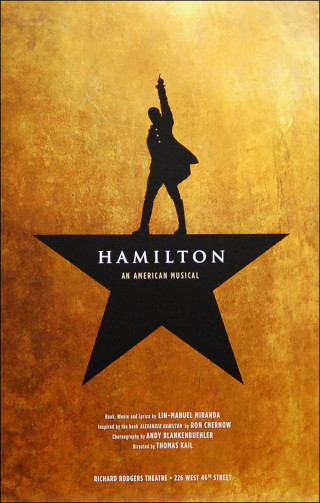So I imagine the third president of these United States, sitting in the second row of the Richard Rodgers Theatre, watching a black man play George Washington, a Latino playing Lafayette, and a black man playing himself, Thomas Jefferson, primary author of the Declaration of Independence. In this play, written by a Nuyorican, he comes off as a preening, brilliant, conniving, self-centered thug.
In fact, I think, oddly, that the Master of Monticello might very much sympathize with iconic African American writer Ishmael Reed’s jeremiad against Hamilton: “It sort of distracts from the racism of the white historical characters.” Reed wrote in CounterPunch (August 21, 2015), “The producers of this profit-hungry production are using the slave’s language: Rock and Roll, Rap and Hip Hop to romanticize the careers of kidnappers and murderers.” His 2018 Off Broadway play, The Haunting of Lin-Manuel Miranda, lacerates the playwright for not taking the “Founding Fathers” to task for the institution of slavery, for romanticizing the largest slaveholding family in the colony of New York, the Schuylers, and for essentially black-and brown-washing the true, not-so-secret history of the United States.
Perhaps the second southern president would look upon all this hubbub with bemusement and mirth. Maybe he would look upon the black Washington and Jefferson and brown Hamilton as a sort of folly. (A folly different from Reed’s, but folly nonetheless.) I think he would be confronted with what he let a-loose in the somewhat still New World. Perhaps he’d admire this portrayal as tough and clever. (I like to think the music would transport him, though.) But he’d have to acknowledge that the soul of his country is southern; the soul of his country is black.
The South—America—has always been multicultural, multiethnic. The myth of a monolithic South that too many hold near and dear was always just that: a myth. For the last decade, I’ve been preaching up the idea of pluralism. The color of our future is not white, nor is it black and white; it is a rainbow. All those rooms full of people, yet underpopulated by people of color are now under the clock—their time is running out. The eighteenth-century Enlightenment idea is simply greater than those cats who met in Philadelphia two centuries ago, greater than us, indeed. I love that the eminent historian James MacGregor Burns persisted in calling us “the American Experiment.” I prefer to think of the South as a work in progress.
To paraphrase the musical Hamilton: “There’s a million things we haven’t done. Just you wait, just you wait.”
